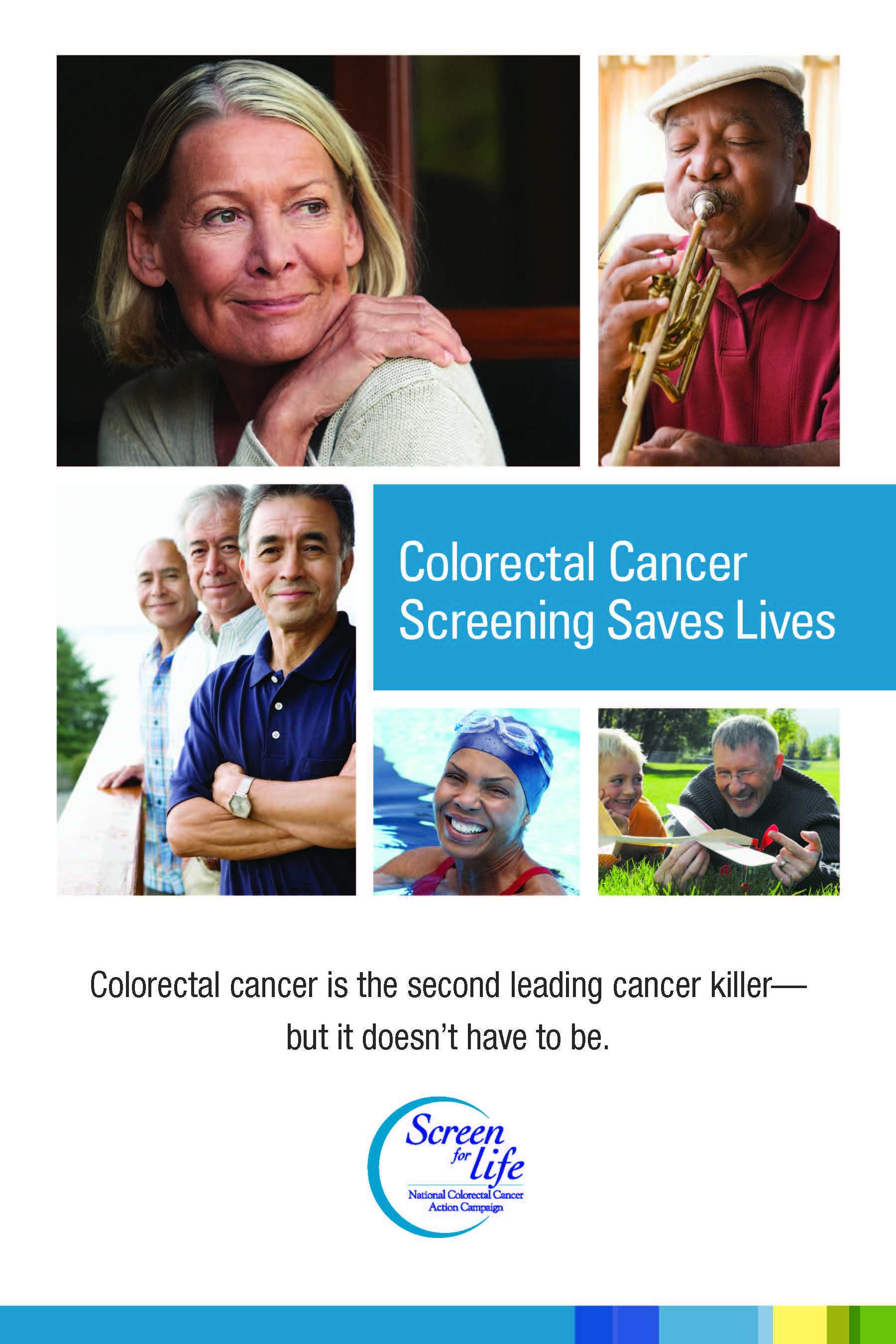Author Archives: Mary Proffitt
Risk Factors for Coloretal Cancer From the CDC –
What are the risk factors for colorectal cancer?
A risk factor is anything that affects your chance of getting a disease such as cancer. Different cancers have different risk factors. For example, exposing skin to strong sunlight is a risk factor for skin cancer. Smoking is a risk factor for cancers of the lungs, larynx (voice box), mouth, throat, esophagus, kidneys, bladder, colon, and several other organs.
But risk factors don’t tell us everything. Having a risk factor, or even several risk factors, does not mean that you will get the disease. And some people who get the disease may not have any known risk factors. Even if a person with colorectal cancer has a risk factor, it is often very hard to know how much that risk factor might have contributed to the cancer.
Researchers have found several risk factors that may increase a person’s chance of developing colorectal polyps or colorectal cancer.
Lifestyle-related factors
Several lifestyle-related factors have been linked to colorectal cancer. In fact, the links between diet, weight, and exercise and colorectal cancer risk are some of the strongest for any type of cancer.
Certain types of diets
A diet that is high in red meats (such as beef, pork, lamb, or liver) and processed meats (hot dogs and some luncheon meats) can increase colorectal cancer risk. Cooking meats at very high temperatures (frying, broiling, or grilling) creates chemicals that might increase cancer risk, but it’s not clear how much this might contribute to an increase in colorectal cancer risk.
Diets high in vegetables, fruits, and whole grains have been linked with a decreased risk of colorectal cancer, but fiber supplements do not seem to help. It’s not clear if other dietary components (for example, certain types of fats) affect colorectal cancer risk.
Physical inactivity
If you are not physically active, you have a greater chance of developing colorectal cancer. Increasing activity may help reduce your risk.
Obesity
If you are very overweight, your risk of developing and dying from colorectal cancer is increased. Obesity raises the risk of colon cancer in both men and women, but the link seems to be stronger in men.
Smoking
Long-term smokers are more likely than non-smokers to develop and die from colorectal cancer. Smoking is a well-known cause of lung cancer, but it is also linked to other cancers, like colorectal. If you smoke, you can learn about stopping in our Guide to Quitting Smoking.
Heavy alcohol use
Colorectal cancer has been linked to the heavy use of alcohol. At least some of this may be due to the fact that heavy alcohol users tend to have low levels of folic acid in the body. Still, alcohol use should be limited to no more than 2 drinks a day for men and 1 drink a day for women.
Make Lifestyle Changes to Reduce Your Colon Cancer Risk – From the Mayo Clinic Staff
- Eat a variety of fruits, vegetables and whole grains. Fruits, vegetables and whole grains contain vitamins, minerals, fiber and antioxidants, which may play a role in cancer prevention. Choose a variety of fruits and vegetables so that you get an array of vitamins and nutrients.
- Drink alcohol in moderation, if at all. If you choose to drink alcohol, limit the amount of alcohol you drink to no more than one drink a day for women and two for men.
- Stop smoking. Talk to your doctor about ways to quit that may work for you.
- Exercise most days of the week. Try to get at least 30 minutes of exercise on most days. If you’ve been inactive, start slowly and build up gradually to 30 minutes. Also, talk to your doctor before starting any exercise program.
- Maintain a healthy weight. If you have a healthy weight, work to maintain your weight by combining a healthy diet with daily exercise. If you need to lose weight, ask your doctor about healthy ways to achieve your goal. Aim to lose weight slowly by increasing the amount of exercise you get and reducing the number of calories you eat.
If You’re 50 or Over – Don’t Wait Get Screened Now
Nutrition For Colon Cancer Prevention – Healthy Horizons Lunch and Learn, Friday, March 27th, Noon
Optimizing your nutrition for colon cancer prevention
Friday, March 27, Noon-12:45, PB204
Samples will be available for the first 30 people
How much fiber do I need? How can I sneak in my fruits and vegetables? Looking for non-meat cooking ideas? Come find the answers- join Healthy Horizons for an interactive session to learn practical tips and sample nutritious ideas on how to eat healthy and support colon health.
Participants will be entered into a drawing for a Healthy Horizons gift package.
Please rsvp to healthyhorizons@butler.edu by Thursday, March 26th.
Five Myths About Colorectal Cancer
Myth: Colorectal cancer is a man’s disease.
Myth: Colorectal cancer cannot be prevented.
Other ways to help lower your chances of getting colorectal cancer:
- Get to and stay at a healthy weight throughout life; stay lean without being underweight.
- Be physically active; limit the time you spend sitting, lying down, watching TV, etc.
- Eat at least 2½ cups of vegetables and fruits each day.
- Choose whole grains over refined grain products.
- Limit the amount of red meat and processed meat you eat.
- If you drink alcohol, limit the amount to 1 drink per day for women, 2 per day for men.
- Don’t use tobacco in any form.




